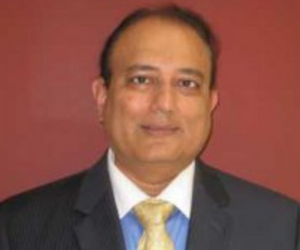HPV Risk and Cervical Cancer
MANY WOMEN ARE MISSING THE BENEFITS OF SCREENING AND VACCINATION FOR CERVICAL CANCER
In spite of the fact that cervical cancer screening is one of the greatest achievements in cancer prevention, too many women still die from the disease. Eight million women between the ages of 21 and 55 were not screened between 2007 and 2012. This amounts to 11.4% of the population. In the case of women with no health insurance, the figure rises to 23%, and for those with no regular health care provider, it is 25%. The proportion of inadequately screened women is higher among older women, Asians, Pacific Islanders, American Indians, and Alaska Natives.
Further, only one in three girls age 11-12 are getting the human papillomavirus (HPV) vaccination; and only one in seven boys in that age group have received the vaccination. HPV vaccination and cervical cancer screening combined could prevent nearly 93% of new cervical cancer cases.
BE CAREFUL TO SCREEN AT THE APPROPRIATE AGES AND TIMES, SO AS NOT TO OVERSCREEN
While many women do not receive the screening they need, there are also women who are overscreened. In 2012, for the first time three major organizations involved with cancer prevention (the American Cancer Society, U.S Preventive Services Task Force [USPSTF], and the American Gynecological and Obstetrical Society) have come together on recommendations for screening.
They recommend a Pap smear every three years for women ages 21-65 years. Or, in the case of women ages 30- 65 years who want to lengthen the screening interval, they recommend screening with a combination of a Pap smear and HPV testing, and this combination can be done every 5 years. The USPSTF gives these approaches an A rating. That is, “There is high certainty that the net benefit is substantial.”
In contrast, according to the USPTSF, screening more frequently or screening with younger or older women in the absence of other risk factors carries a “moderate or high certainty that the service has no net benefit or that the harms outweigh the benefits.” In spite of this knowledge, some women are screened more frequently than is desirable, and some are screened when they are outside the range of the ages at which they’ll benefit from the tests.
VACCINATION PLAYS A MAJOR ROLE IN DECREASING THE BURDEN OF CERVICAL CANCER
Persistent HPV infection is responsible for the majority of cervical cancers. Like the common cold, HPV can spread easily. However, unlike colds, HPV is spread through sexual contact. It is important to note that it does not require penetration to spread, given that one can get HPV through skin-to-skin contact. The good news is that most women who get the virus will clear it within two years. The bad news is that they may become re-infected many times. Additionally, if they have a weakened immune system, they may be unable to clear it.
Under the wrong circumstances, the virus may cause abnormal cell changes or lesions that if untreated can progress to cancer. There are several stages during which this chain of events can be interrupted: vaccination prevents HPV infection from occurring; screening allows detection of the virus and/or cell changes; and follow-up of abnormal results can also prevent the disease from progressing.
MAKE SURE TO STAY ON TOP OF ABNORMAL HPV AND PAP RESULTS
Once a woman has an abnormal diagnosis, education on appropriate follow-up and treatment is essential. This is especially true for African-American women. While Hispanic women have the highest rate of new cases, African-American women are the most likely to die. The problem is follow-up, and the cause of this can be an access, cultural, or insurance issue. No woman should die of this preventable disease, so take special care that each of your patients gets the necessary follow-up.
Search Articles
Latest Articles
The Hidden War: How Hybrid Warfare Targets Democracy
https://foreignpress.org/journalism-resources/the-hidden-war-how-hybrid-warfare-targets-democracy Publication –foreignpress.org
Hybrid Warfare: The West Needs to Stop Playing Defense
https://foreignpress.org/journalism-resources/hybrid-warfare-the-west-needs-to-stop-playing-defense Publication –foreignpress.org
The Invisible Wounds of California’s Wildfires
https://foreignpress.org/journalism-resources/the-invisible-wounds-of-californias-wildfires Publication –foreignpress.org
Investing in Ukraine: A High-Potential Market with Some (Literal) Landmines
https://www.wealthmanagement.com/high-net-worth/investing-ukraine-high-potential-market-some-literal-landmines Publication –wealthmanagement.com
Subscribe to Updates
About Author

Mitzi Perdue is the widow of the poultry magnate, Frank Perdue. She’s the author of How To Make Your Family Business Last and 52 Tips to Combat Human Trafficking. Contact her at www.MitziPerdue.com
All Articles
Why You Need a Family Legacy Mindset
Why You Need a Family Legacy MindsetWhen Vincent Valeri joined the wealth management industry in 2011, he realized there was an extraordinary gap in what most of these organizations offered and what almost all families need. The organizations, he discovered, might be...
Putting the “Family” in Family Business: It’s Worth It
Putting the "Family" in Family Business: It's Worth ItHere’s a question for you: to qualify as a family business, do at least some members of the business need to be related by blood or marriage? Tobi Silver, President of Sterling Resources, LTD has a simple,...
How to Make Your Family Live up to Its Promise
How to Make Your Family Live up to Its PromiseLisa Niemeier, family office consultant and founder of graymatter Strategies LLC, feels that family wealth is a gift. Too often and with too many families, this wonderful gift isn’t allowed to live up to its promise. In...
Silver Arrow’s Secret Sauce: An Investment Thesis Approach
Silver Arrow’s Secret Sauce: An Investment Thesis ApproachLet’s suppose a delightful situation. One way or another (maybe through inheritance, or you got a bonus, or you sold your company) you have some money available to invest. It’s a responsibility. What’s your...
How to Preserve Your Legacy, Using a Stone-Age Technique
How to Preserve Your Legacy, Using a Stone-Age TechniqueAndrew Suhl has added an electronic twist to a Stone-Age practice. Amazingly, the ancient practice we’re talking about is one that even today is one of the most essential tools for keeping your family together...
Seven Tips for Personal Cyber Security
Seven Tips for Personal Cyber SecurityRajesh Mahadwar, CEO of Softkey,Inc., is a great friend of mine, and we bonded over a shared interest in cyber security. He knows my opinion, that if you don’t get this right, you’re letting yourself in for a world of misery and...






